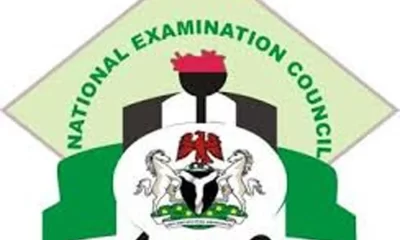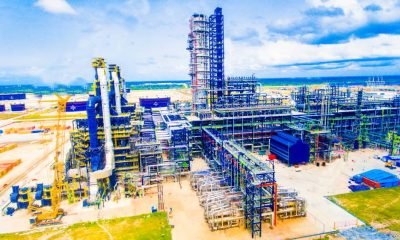Business
Gbenga Daniel clarifies role in Ogun FTZ dispute, says he’s ready to help with resolution
Gbenga Daniel, a former governor of Ogun state, has reacted to the ongoing legal dispute between a Chinese firm and the Nigerian government over the Ogun/Guangdong free trade zone (FTZ).
A Paris court recently ordered the seizure of Nigeria’s assets, including three aircraft, over the contract dispute.
The court ruled that the Chinese firm should use Nigeria’s jets at the Paris-Le Bourget and Basel-Mulhouse international airports “as security for its claim of EUR 74,459,221”.
However, the Chinese firm has indicated interest in resolving its dispute with the Nigerian government.
In a statement issued by his media office on Saturday, Daniel, the originator of the free trade zone concept during his tenure, clarified that neither he nor his administration was directly involved in the current arbitration and legal proceedings related to the termination of the FTZ management contract.
“We need to establish clearly that Otunba Gbenga Daniel or his administration is not in discussion on the matter before the courts and arbitration; neither were the terms or proprietary of the agreement for the establishment of the FTZ; rather, it is the termination of a management contract. The judgments in all the courts are very clear on this,” the statement reads.
“It is also important to note that this is a very sensitive matter involving our collective national assets and commonwealth, which every patriotic Nigerian should feel concerned about.
“And as a patriotic elder statesman who has had the privilege of serving Ogun state as the governor, through which he was able to bring about several developmental projects, including the establishment of the Ogun/Guangdong free trade zone and others, and through which he has impacted on the lives of many citizens, also as a serving senator of the Federal Republic of Nigeria, it is this patriotic path he chooses to thread.”
The former governor noted that since the matter is currently in court, it would be inappropriate to comment on it.
He emphasised the need to support President Bola Tinubu in seeking a “diplomatic solution to the issue at hand”.
“Rather than engaging on media comments, the most reasonable course of action that senator Otunba Gbenga Daniel would rather engage in is helping Nigeria, through the president and Commander-in-Chief, Asiwaju Bola Ahmed Tinubu, to find a diplomatic solution to the issue at hand with available records that could assist the federal government in pursuing its course at the arbitration and before the courts,” he added.
“He cannot do this on the pages of the newspapers and on other media, which may also compromise the strength of Nigeria’s arguments in the courts.
“We need to also appreciate that this matter is before various courts in several countries, and it is subjudice for anyone to speak on them.”
‘NIGERIANS ARE ALREADY WORKING AT THE FTZ’
The former governor said many Nigerians are already employed at the free trade zone, demonstrating that the project is operational.
He added that about 56 companies were in various stages of operation at the time he left office.
“However, let us emphasise once again that the Ogun/Guangdong Free Trade Zone project still exists, and several Nigerians are working there as we write, just as there are several companies still doing their legitimate businesses,” Daniel said.
“It is from this perspective of development that the efforts of Otunba Gbenga Daniel should be well appreciated.
“At the time of his handover in 2011, about 56 companies were at various stages of operations, construction, and showing interests in the Free Trade Zone, through which various life-impacting developments (including but not limited to the construction of roads, schools for the local community, scholarship and sponsorship of many Nigerians for academic pursuit, etc.) have taken place in the Igbesa area, which was an otherwise rural community before the establishment of the Free Trade Zone.”























